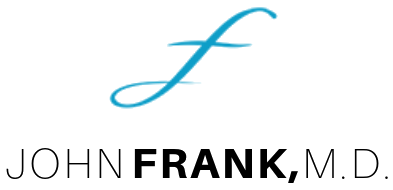If you’re looking to boost your hair’s growth and thickness, then diet is a great place to start!
Changing a poor or unbalanced diet can be beneficial in slowing – or even reversing – premature hair loss caused by nutrient deficiency. Include the following nutrients and foods to help achieve a full head of hair:
Omega3 Fatty Acids
Good for more than your brain, Omega3 fatty acids are an essential nutrient that nourish the hair follicles through the hair shaft and cell membranes in the scalp. They also add elasticity to the hair, preventing it from breaking off.
Your body can’t produce omega3 fatty acids on its own, so whatever you eat is what your body gets!
Foods to eat: flaxseeds, walnuts, almonds, salmon, tuna, mackerel, kale, brussels sprouts, rapeseed oil
Zinc
Boosting tissue growth and repair, zinc helps keep your scalp and hair follicles healthy. It also regulates hormones (like testosterone) and helps maintain production of the oil-secreting glands on the scalp that help your hair follicles grow.
It’s important to maintain the right balance of zinc intake, however, as higher levels of testosterone are actually linked to hair loss.
Foods to eat: chickpeas, wheat germ, oysters, beef, veal liver, roast beef
Protein
Your hair is almost entirely protein. So it’s no surprise that a diet full of healthy protein is essential in maintaining a thick head of hair.
If you don’t eat enough protein for both your muscles and hair, you’ll have bulging biceps—but a bald head. Even if you do hang onto your hair, eating too little protein can turn it gray. So eat a diet rich in high quality, naturally occurring protein for optimal hair growth.
Foods to eat: Greek yogurt, eggs yolks, kale, peanuts, beans, peas, lentils, tofu, quinoa, chicken, turkey
Iron
Iron deficiency is one of the most common nutritional deficiencies. It is also a leading cause of premature hair loss, as well as a leading cause of hair loss in post-menopausal women.
Since iron helps transport blood to the body’s cells and oxygen to the scalp, it is essential for healthy circulation and strong, thick hair follicles.
Foods to eat: dark leafy greens, whole grains, soybeans, red meat, turkey, egg yolks, clams, mussels, oysters
Vitamin C
Vitamin C is needed for collagen production, which helps keep the scalp’s blood vessels healthy to strengthen hair follicles and absorb more iron.
Foods to eat: citrus fruits, kale, bell peppers, broccoli, strawberries, tomatoes
Vitamin A
Skin glands use vitamin A to produce sebum, the oily substance that keeps hair moisturized and healthy.
While some vitamin A is good for your scalp, more than 15,000 IU a day can actually spur hair loss. The recommended allowance of vitamin D for men is 5,000 IU a day.
Foods to eat: spinach, carrots, sweet potatoes, mango, pumpkin, milk, eggs
Vitamin D
Vitamin D is metabolized by skin cells that process keratin, a protein found in hair, nails, and skin. When the body doesn’t have enough vitamin D, keratinocytes in hair follicles have trouble regulating hair growth, leading to shedding and thinning of the hair.
Foods to eat: salmon, tuna, egg yolks, tofu, mushrooms, fortified cereals & juices

Join the 15,000+ patients who have trusted Dr. John Frank to restore their hair and self-confidence.
Contact us today to request a free appraisal!
Magnesium
The fourth most abundant mineral in the body, magnesium is needed for more than 300 biochemical reactions—including hair growth. But research from the Medical University of South Carolina shows that 68 percent of U.S. adults don’t get enough magnesium.
However, magnesium deficiency is directly related to hair loss. When magnesium levels are low, hair follicles go into a resting phase and stop producing new hair.
Foods to eat: almonds, avocados, cashews, bananas, brown rice, halibut
Selenium
A trace element that helps the body make selenoproteins, which regulate reproduction, metabolism, DNA synthesis, and immunity, selenium also stimulates hair follicles to encourage new growth.
A shortage of selenium can lead to hypothyroidism, hair follicle abnormalities, reduced hair growth, and hair loss.
The foods to eat: brazil nuts, eggs, tuna, halibut, shrimp, sardines, ham
Are Healthy Foods Not Enough to Revive Your Hair Growth?
A proper diet full of these vitamins and minerals can create healthier, thicker hair. But if diet changes do not slow or prevent hair loss over time, there are other alternatives that can help!
Book a Frank & Honest Hair Consultation with hair restoration expert Dr. John Frank to discover the cause of your hair loss and discuss the right hair treatment options for your case.

GET MY NEW BOOK!
Download the digital version of my new book, Two-Minute Warning: Winning the Game of Male Hair Loss for FREE.
I just published a new book for men, 35 and older, who are experiencing hair loss.
Two-Minute Warning: Winning the Game of Male Hair Loss distills my two decades of experience in helping men regain their hair, confidence, and appearance into a book that will take you only an hour or two to read.
There is NO FLUFF (other than a few football stories) and you will get my best advice, tips, and strategies for turning back the clock. For a limited time, you can get a free copy by clicking the button below.



